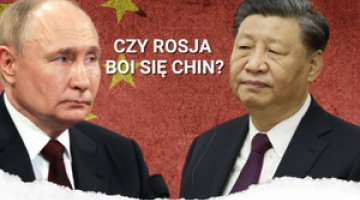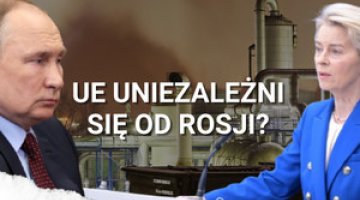The Orbán–Putin meeting in Beijing: Hungary drifting away from the West
On 17 October 2023 in Beijing, on the sidelines of the Belt and Road Forum organised by China, Hungary’s prime minister Viktor Orbán met Russian President Vladimir Putin. The talks included issues such as gas and oil supplies from Russia to Hungary, and plans for Rosatom to construct new units of the Paks Nuclear Power Plant in Hungary. The meeting was also attended by the two states’ foreign ministers, Russia’s deputy prime minister for energy affairs and the CEOs of Russian energy companies.
During a joint statement Prime Minister Orbán emphasised that Hungary has never sought confrontation with Russia, but intended to develop as close a relationship with Moscow as possible. However, this tie has suffered a serious decline due to the “[Russian] military operation” and the EU sanctions. He added that in this situation it was necessary to save as much as possible from the relationship. He also thanked Russian state companies, such as Rosatom and Gazprom, for “meeting the obligations they had undertaken towards Hungary”. President Putin for his part expressed satisfaction with the fact that despite the difficult geopolitical situation Russia maintained its relations with some European states, including Hungary. In an interview with Russian state television, he also said that Orbán is one of the few European leaders who are capable of successfully defending their country’s interests.
Commentary
- The meeting between Orbán and Putin demonstrates Hungary’s further break from Western policy towards Russia, which will result in Hungary’s increasing isolation within the EU and NATO. The Hungarian prime minister is the only EU member state leader to have met Russia’s president since March 2023, when the International Criminal Court issued an arrest warrant for Putin (and the second EU leader, after Austria’s chancellor, to have met him since Russia launched its invasion of Ukraine last February). In addition, Hungary’s government has regularly promoted views which support Moscow; for example, it has advocated halting the military assistance offered to Kyiv, abolishing EU sanctions and resuming economic cooperation with Russia. In Beijing, Orbán even reiterated certain statements spread by Kremlin propaganda; for example, he referred to the Russian invasion of Ukraine as a “military operation”. Budapest’s stance enables Moscow to highlight the incoherence of the West’s position, and is contributing to decisions targeting Russia being postponed or blocked (for example, Hungary has not ratified Sweden’s accession to NATO, and it has threatened to veto any decision to launch EU membership negotiations with Ukraine). The Russian propaganda apparatus has commented extensively on the meeting between Orbán and Putin, as well as the very presence of the Hungarian prime minister at the Chinese forum. It has also emphasised that Putin is not isolated on the international political scene.
- In recent weeks, aside from the mounting political cost for Budapest, there have been increasing doubts regarding the economic viability of Russian fuel supplies to Hungary. In June, Kyiv raised the transmission fees applied to the Druzhba oil pipeline through which Russian oil is supplied to Hungary. Moreover, the future of gas transit from Russia via Ukraine to Hungary is uncertain, as the gas transit contract between Naftohaz and Gazprom will expire in December 2024. Bulgaria for its part plans to introduce additional fees for gas transit via the TurkStream gas pipeline (Hungary receives around 80% out of the 4.5 bcm of gas it has ordered via this route, on the basis of a 15-year contract signed with Gazprom in 2021). This will further increase the cost of importing gas from the Russian Federation. On 13 October, a law came into effect in Bulgaria which enables the government in Sofia to introduce such fees. This development came in for harsh criticism from Hungary’s Foreign Minister Péter Szijjártó, who was visiting Moscow on that day. Unlike other EU member states, Hungary has not launched intensive actions to diversify its sources of fuel supplies following Russia’s invasion of Ukraine, and it is still importing large amounts of Russian fuels (in the first nine months of 2023 it imported 4.8 bcm of gas and 3.5 mn tonnes of oil).
- The prospects for the implementation of the most important Hungarian-Russian project, namely the construction of the Paks II Nuclear Power Plant, are also increasingly uncertain. Although Budapest has attempted to increase the involvement of Western partners in this undertaking, Rosatom is still its main contractor (see ‘Russia’s nuclear project in Hungary: France’s growing role’). After many years of delay, 2023 saw the launch of preparatory work on its construction. Despite this, the investment has failed to obtain all the required permits from the Hungarian Atomic Energy Authority. Any decision to limit Russia’s involvement in this project may deal a major blow to Rosatom.





